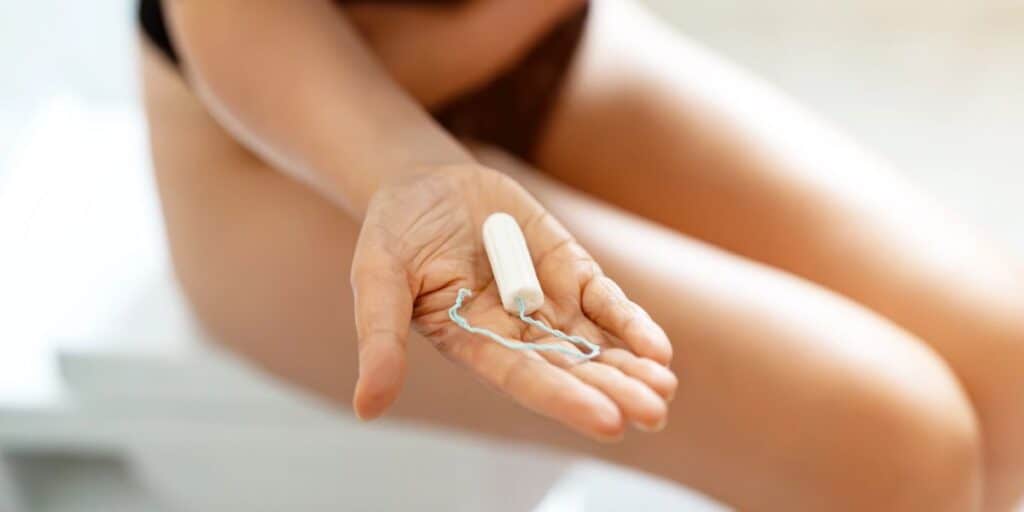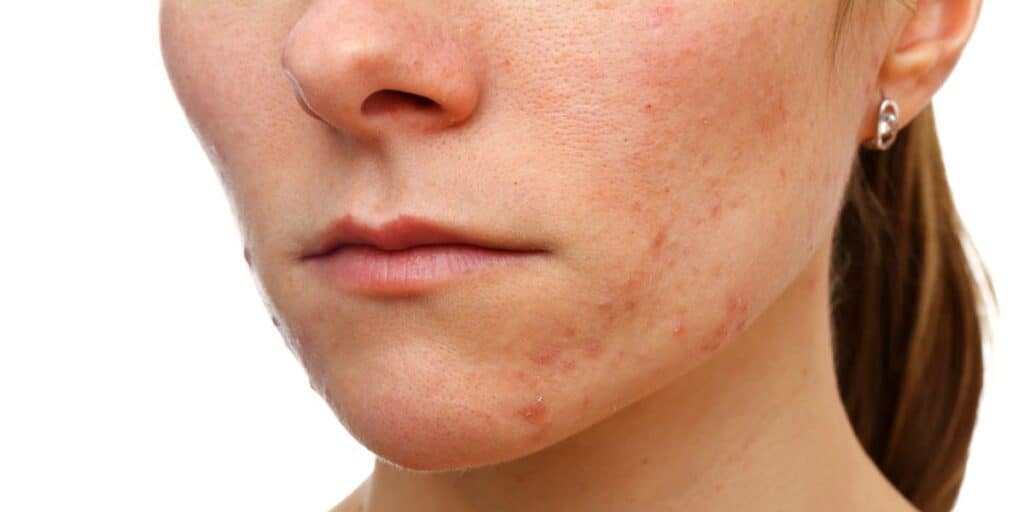Postpartum Depression: Symptoms and Treatments
Postpartum depression is a type of clinical depression that women suffer following the birth of their child. It is characterized by feelings of extreme anxiety, sadness, or hopelessness that begin sometime during the first year after having a baby and persist for longer than two weeks.
Some new moms may experience a more severe, long-lasting form of depression known as postpartum depression. Rarely, an extreme mood disorder called postpartum psychosis also may develop after childbirth.
Postpartum depression often goes undiagnosed or dismissed as the “baby blues,” but postpartum depression is a distinct and serious mental illness. If you are suffering from depression following the birth of your child, you are not alone, and help is available.

What are the “Baby Blues”?
Postpartum depression is NOT the “baby blues” or postpartum blues. Postpartum blues refers to a temporary state of anxiety or depression that occurs about 2-3 days after childbirth and usually only lasts for a few weeks. The “baby blues” is a term used to describe the feelings of worry, unhappiness, and fatigue that many women experience after having a baby.
Having a newborn is an intensely emotional time for a new mother. The psychological enormity of this event, combined with the chemical changes in her body, along with depression during a time when a new mom should feel happy, can feel overwhelming. A woman’s mental health going through baby blues may:
- Experience mood swings
- Cry for little or no reason
- Lash out at her partner or other children
- Lose her appetite
- Have trouble sleeping
- Be unable to make clear decisions
- Feel overwhelmed by the responsibilities of motherhood
What is Postpartum Depression?
Postpartum depression may be mistaken for “baby blues” at first, but the signs and symptoms are more intense and last longer and may interfere with your ability to care for your baby, yourself, and handle other daily tasks. Symptoms usually develop within the first few weeks after giving birth but may begin earlier, during pregnancy, or later up to a year after birth.
Furthermore, the emotional effects of postpartum depression are much more severe than those of the “baby blues.” Women with postpartum depression often feel so depressed and anxious that they have a hard time taking care of themselves, their newborns, and their other children. This is why it is so important that women seek healthcare treatment options to help to manage their symptoms.
Symptoms of Postpartum depression
Hormonal changes may trigger symptoms of postpartum depression. When pregnant, levels of the female hormones estrogen and progesterone are the highest they’ll ever be. On the first day after childbirth, hormone levels quickly drop back to normal to pre-pregnancy levels. Researchers think this sudden change in hormone levels may lead to depression.
- Depressed mood or severe mood swings
- Excessive crying
- Feelings of sadness
- Difficulty bonding with your baby
- Withdrawing from loved ones, family, and friends
- Loss of appetite or eating much more than usual
- Inability to sleep (insomnia) or sleeping too much
- Overwhelming fatigue or loss of energy
- Reduced interest and pleasure in activities you used to enjoy
- Intense irritability and anger
- Fear that you’re not a good mother
- Hopelessness
- Feelings of worthlessness, shame, guilt, or inadequacy
- Diminished ability to think clearly, concentrate, or difficulty in making decisions
- Restlessness
- Severe anxiety and panic attacks
- Thoughts of harming yourself or your baby
- Suicidal thoughts
Untreated, postpartum depression may last for many months or longer.
Postpartum psychosis
Postpartum psychosis is a rare mental health condition that typically develops within the first week after delivery. The signs and symptoms are very severe. Signs and symptoms of postpartum psychosis may include:
- Confusion and disorientation
- Obsessive thoughts about your baby
- Hallucinations and delusions
- Sleep disturbances
- Excessive energy and agitation
- Paranoia
- Attempts to harm yourself or your baby
Postpartum psychosis may lead to life-threatening thoughts or behaviors and requires immediate treatment.
Causes of Postpartum Depression
Postpartum depression is a complex psychological disorder that often has several interacting causes. Experts believe that these factors may contribute to postpartum depression:
Fatigue
Giving birth, whether vaginally or through Cesarean delivery, puts extreme strain on the human body. It takes several days or even weeks for most women to fully recover following childbirth. Moreover, caring for a newborn, especially without support from a partner or family members, can be physically and emotionally exhausting.
Hormonal changes
Your body releases a special blend of hormones to create a hospitable environment for your baby to grow in the womb. After childbirth, the production of these hormones – namely estrogen and progesterone – drops dramatically. Much like the emotional ups and downs of premenstrual syndrome (PMS), rapid fluctuations in hormones can trigger mood swings and depression in some women.
Emotional stress
Having a new baby can be incredibly stressful, especially if the pregnancy is unplanned or unwanted or if the mother does not have a strong emotional support system to help her take care of her newborn. Additionally, an illness that keeps the baby or mother in the hospital longer than expected can be distressing and provoke feelings of anxiety and helplessness.
Personal history of depression
New mothers who have been diagnosed with depression in the past have an increased risk of developing postpartum depression. If you have been treated for depression or another mood disorder or mental illness, disclose this information to your gynecologist when you become pregnant. Risk factors are higher for women with bipolar disorder or another mental health condition called schizoaffective disorder to experience postpartum psychosis.
If you are on antidepressants, your doctor may have you switch medications to protect your growing baby. Your doctor can work with you to decrease your risk of postpartum depression and may recommend beginning counseling soon after you give birth.
Postpartum depression in new fathers
New dads can experience postpartum depression, too. They may feel sad or fatigued, be overwhelmed, experience anxiety, or have changes in their usual eating and sleeping patterns, the same symptoms as mothers with postpartum depression.
Fathers who are young, have a history or family history of depression, experience relationship problems, or are financially struggling are most at risk of postpartum depression. Postpartum depression in fathers, sometimes called paternal postpartum depression, can have the same negative effect on partner relationships and child development as postpartum depression in mothers.
If you’re a new father and are experiencing symptoms of depression or anxiety during your partner’s pregnancy or in the first year after your child’s birth, talk to your healthcare provider. Similar treatments and supports provided to mothers with postpartum depression can be beneficial in treating postpartum depression in fathers.
Diagnosing Postpartum Depression
If you have been experiencing depressive symptoms for longer than two weeks following childbirth, call your gynecologist. Your gynecologist will conduct an interview and evaluate your symptoms. You may find it helpful to write down a list of your symptoms and any questions you may have for your doctor. If your doctor believes you are suffering from postpartum depression, she may refer you to a mental health professional for treatment options.
When to see a doctor
If you’re feeling depressed after your baby’s birth, you may be reluctant or embarrassed to admit it. But if you experience any symptoms of postpartum baby blues or postpartum depression, call your doctor. If you have symptoms that suggest you may have postpartum psychosis, get help immediately.
It’s important to call your doctor as soon as possible if the signs and symptoms of depression have any of these features:
- Don’t fade after two weeks
- Are getting worse
- Make it hard for you to care for your baby
- Make it hard to complete everyday tasks
- Include thoughts of harming yourself or your baby
Your doctor may recommend that you meet regularly with a counselor or that you start taking antidepressant medications. Often, both types of treatment are recommended. While PPD does, at times, go away on its own, symptoms usually go away more quickly with the help of medication and talk therapy.
At the very forefront of women’s health in Los Angeles – Dr. Aliabadi
Dr. Thaïs Aliabadi routinely appears among the top OB/GYNs in the country’s physician rankings. This success was earned following years of exacting training, as well as decades of building and nurturing one-on-one relationships with every woman who comes to her practice.
We invite you to establish care with Dr. Aliabadi. Please make an appointment online or call us at (844) 863-6700.
The practice of Dr. Thais Aliabadi and the Outpatient Hysterectomy Center is conveniently located for patients throughout Southern California and the Los Angeles area. We are near Beverly Hills, West Hollywood, Santa Monica, West Los Angeles, Culver City, Hollywood, Venice, Marina del Rey, Malibu, Manhattan Beach, and Downtown Los Angeles.
















